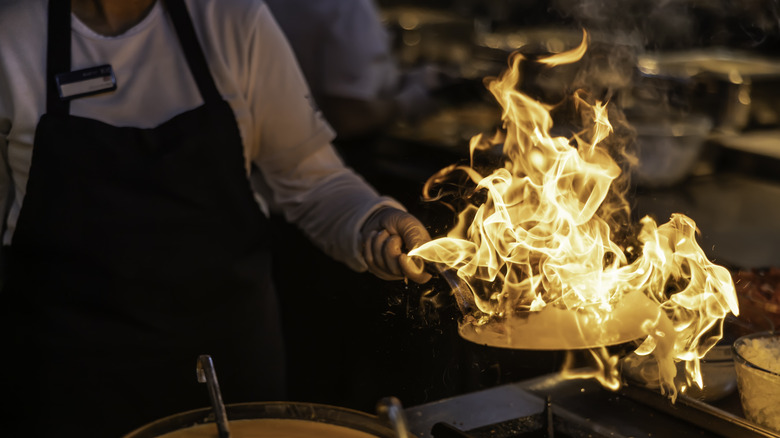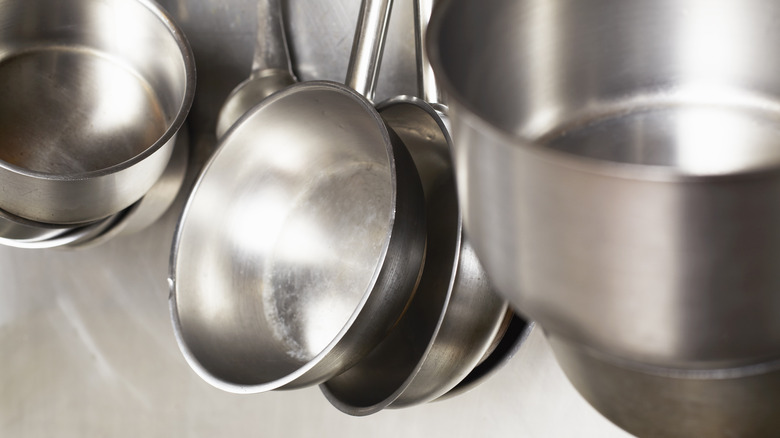What You Need To Know Before Flambeing For The First Time
If you're a home chef, flambeing can be a little intimidating. The idea of accidentally burning your kitchen down isn't exactly an attractive proposition. However, it's a worthy technique, rapidly reducing sauces and leading to caramelization that deepens your dishes' flavors, and it's surprisingly simple for beginners.
For some tips on how to get started, we asked chef Cédric Vongerichten, owner of Wayan, a French-Indonesian restaurant serving some of New York's finest fusion food. He took some time out of preparing for City Harvest's annual BID tasting event — which features some of the best chefs in the NYC food scene, and takes place on October 29 — to give us some pointers.
For beginners, chef Cédric recommends to "remove the pan from the heat source before adding the alcohol to prevent accidental flare-ups." This also helps avoid any unwanted spillages from going drastically wrong (and if they do, make sure you have some baking soda on hand). To ignite the alcohol safely, chef Cédric advises to "use a long lighter or match." He also notes the importance of flambeing in a well-ventilated space — unless you want to set off your smoke alarm.
Do you need any specific gear to flambe?
You might wonder if you need any fancy kitchenware to start flambeing — but the fortunate answer is no, not really! What is important, though, is choosing the right pan. "Stainless steel or copper pans with long handles are ideal for flambeing," Chef Cédric Vongerichten told us. "The reason is that they distribute heat evenly and are safe to use." The long handle will keep your hands safely away from the flame, preventing any singeing. No one likes the smell of burnt arm hair, after all.
Make sure not to use a non-stick pan, though. The coating that gives them that magical non-stick property is only designed to withstand certain temperatures, and flambeing's super-high heat can damage it. It's best to stick to chef Cédric's advice here. Stainless steel pans are much more durable, and when pre-heated properly, they become non-stick on their own!
As for the alcohol to use, an 80-proof liquor (about 40% ABV) is the best. Armagnac, cognac, or rum are great options. For something like a classic crêpes Suzette, use an orange liqueur such as Grand Marnier. Whatever alcohol you choose will impart its flavor onto your dish as it burns off, so be sure to pick one that complements the flavor profile of your dish!


